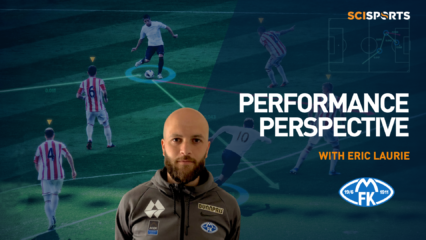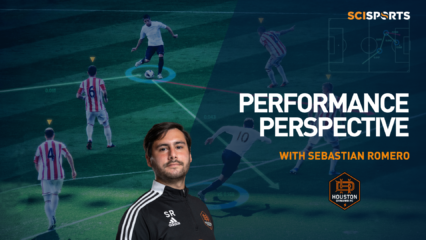
In this item called ‘In the field’ we share insights from domain experts directly from the football industry. The content is all about user cases and interesting developments from the usage of data analytics in the world of football. This edition is with David Sharpe, former Chairman of Wigan Athletic, current Senior Sports Agent at the 366 Group and Strategic Advisor at SciSports.
What is your current function within the football industry and what are your most important tasks and responsibilities in this role?
Three months ago, I stepped down as Chairman of Wigan Athletic since the club was sold to a Chinese Business. Now, I work for SciSports as a Strategic Advisor on a part-time basis. Next to this, I work as Senior Sports Agent at the 366 Group. My main focus right now, is to employ agents and to represent players in contract negotiations and commercial deals. It is good to see the amount of transfers going on.
Do you apply data analytics in your current role? If yes, how does data analytics give you more insight?
In my current role at the 366 Group, we use data analytics in targeting player and in player recruitment. For instance, if we are in contact with a player, we use data analytics to show him his performances, his potential, and how he can be compared to other players across the same league or higher leagues. Mainly, we use data analytics to educate the players, but it can also help to convince players to sign for our company.
We also applied data analytics at Wigan Athletic for the recruitment team. We would only sign players when we had done both, objective (data)scouting and traditional scouting. The combination of the two is crucial. That is an example of what we did last summer, when we signed Cédric Kipré of Motherwell FC for Wigan Athletic. We found him on the online recruitment platform of SciSports’ platform. His SciSkill score and Potential were really interesting. As a result, we watched him around five times and eventually signed him. Kipré has only missed a few matches for Wigan Athletic and is performing very well. The SciSkill algorithm is a great way to cross-reference the level of a player and to use as an initial check.
What are the key questions you try (or would like) to answer with data analytics?
Data analytics have played an important role in the initial check on a player. Is it worth it to watch a game of a specific player? We determined this by taking a look at their current SciSkill and SciSkill Potential. The next step is a more in-depth analysis, the ‘thinking behind the numbers’. How does a player influence the team? As an example, we would take a look at the attributes of a player for this analysis.
Furthermore, you can use data analytics to identify if a player will fit within a specific playing style and/or formation. Every football club has its own DNA and vision in which a player is suitable or not. Moreover, data analytics can be useful to identify the type of players. When we were looking for a left winger, we were specifically looking for an inside winger that cut inside to his right foot. We used data analytics to compile a shortlist of five to ten names that we wanted to scout and watch. You can then compile these shortlists in countries such as Belgium or the Netherlands. With the help of data analytics, you can send your scouts in a goal-oriented way rather than just watching games just for the sake of watching games.
How do you experience the developments of data analytics within your working field and do you follow the latest trends and developments actively?
Now, especially in the United Kingdom, with the amount of money being spent on recruitment, football organizations are going to use data more than ever. In a lot of leagues, it is common to have a data analytics team within a club. These data analytics teams create special models and algorithms that fit their club. With the available money in the Premier League, I think this strong development of data analytics will continue since clubs want to do as much research and gain as much knowledge on players as possible.
In general, the UK has quite a traditional view of data. This can also be seen in the fact that the biggest league in the world, the Premier League, was relatively late with applying data. Another reason for the late application of data is that a lot of clubs still have an ‘old school’ scouting approach, where agents play a more important role than data does. Luckily, clubs are starting to realize how important data can be. The UK market is finally trying to catch up with markets as the United States. Looking at how big the football market is over here, it still amazes me that clubs are not utilizing data more in aspects such as player signings.
In all sports worldwide the use of data analytics is becoming more popular. Do you believe data analytics has a big role to play in the future of football or do you feel it is just hype?
This is just a start. It will definitely get bigger. Five years ago, data analytics became important in the recruitment process in the Premier League. Clubs as Liverpool, Brighton & Hove Albion and Brentford were a little earlier since they were more data-driven. Next to this, the amount of money in football will continue to grow, which will benefit data. Furthermore, the way clubs are going to be led, the data will grow stronger. A crucial aspect in the growth of data is that it has to be understandable for football people so that they can accept it and use it. A lot of managers and chief scouts in the football industry do not know how to understand and read the data. Although, the data analytics team are doing a great job for them, I think it is important to keep data analytics understandable. There is no point having a big data recruitment/analytics team if football people do not know how to read the data.
ABOUT US
ABOUT US

SERVICES
SERVICES







